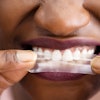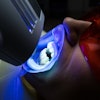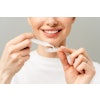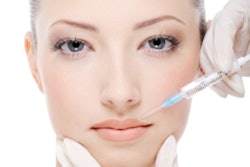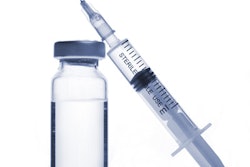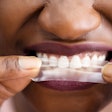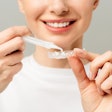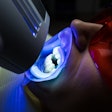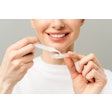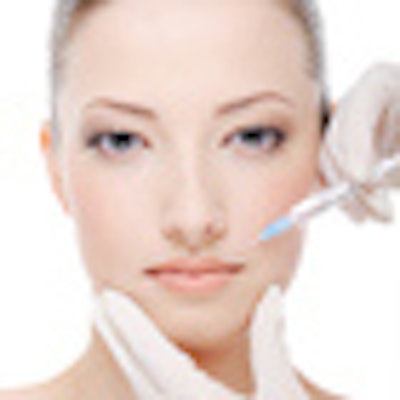
Botox injections can provide relief to patients who suffer from nocturnal bruxism, or teeth grinding, according to two studies presented last month at the American Academy of Neurology's (AAN) annual meeting.
Bruxism is probably the most common sleep disorder, occurring in up to 15% of the population, noted researchers from the University of Texas Health Science Center in Houston (UTHSC) who examined the effects of injecting onabotulinumtoxin A (Botox) into patients' muscles of mastication. There is no established treatment other than bite guards to limit dental damage.
"Dental appliances help prevent tooth damage, but have not been shown to reduce the actual bruxism," said study author William Ondo, MD, a professor of neurology at the UTHSC, told DrBicuspid.com.
Relaxes the muscles
To test the safety and efficacy of administering Botox injections into the masseter and temporalis muscles of patients with nocturnal bruxism, they conducted a double blind, placebo injection controlled trial with 23 subjects (19 women). Almost all reported temporal-mandibular pain.
This is the first placebo controlled trial of botulinum toxin for bruxism to incorporate sleep data, according to Dr. Ondo. The study was supported by an unrestricted grant from Allergan, makers of Botox.
“This is a very encouraging treatment for a very common problem.”
— William Ondo, MD
Patients underwent a baseline/screening overnight sleep study. They were then randomized to receive botox or placebo into the bilateral masseter (60u/side) and temporalis muscles (40u/side). Thirteen study participants received the Botox injections, while the other 10 were randomized to placebo.
All the participants were tested four weeks later to determine if the injections had any effect on their bruxism and quality of sleep. The primary efficacy points were clinical global impression (CGI) and visual analogue scale (VAS) of change. The researchers also looked at change in sleep study data, including masseter placed electrodes, pain scales, sleep scales, and adverse events.
They found that CGI (p < 0.05) and VAS of change (p < 0.05) favored the Botox group. There were no significant differences between the two groups on the second scales. Adverse events were limited to two subjects with a cosmetic change in their smile.
The researchers allowed study participants to get open label follow-up injections of Botox. The mean duration to open label follow-up injection was 107 days in those randomized to Botox versus 40 days in those randomized to placebo.
Botox effectively and safely improved nocturnal bruxism in this small pilot trial, but multicenter trials are needed to confirm these results, the study authors concluded.
"Regardless of the etiology of bruxism, it is mediated by muscle contractions that move the jaw," Dr. Ondo said. "Botulinum toxin simply relaxes/weakens those muscles, so it is not surprising that it was beneficial."
While larger multicenter trials are needed to confirm these results, "we feel this is a very encouraging treatment for a very common problem," he added.
Recommended dosage?
This is an exciting study that once again verifies the benefit of Botox injections for dental uses, according to Louis Malcmacher, DDS, president of the American Academy of Facial Esthetics (AAFE). Members of the AAFE have been using Botox for the last few years to successfully treat bruxism, clenching, TMJ syndrome, and facial pain, he added.
The one issue he raised was that Botox dosage should not be standardized.
"The American Academy of Facial Esthetics recommendations for Botox injections in the masseter and temporalis is to start with the lowest dose possible to achieve the desired effects based on the size of the masseter and temporalis muscles, the intensity of contraction, and the symptoms that the patient is experiencing," he told DrBicuspid.com.
In another study presented at the AAN meeting found that Botox injections can be used in with anoxic brain injury of which severe bruxism is a frequent complication.
The study, which included four female patients between the ages of 23 to 63, was conducted at the Henry Ford Health System. The patients were seen between November 2003 and August 2011.
All four patients received Botox injections in the bilateral masseter and/or temoporalis muscles. Between 50 and 100 units of Botox were injected during each visit.
All patients responded positively to the injections, and there were no reported side effects, according to the researchers.
"Onabotulinumtoxin A injections are an efficacious and valuable treatment for patients with severe bruxism post anoxic brain injury," concluded the authors.
